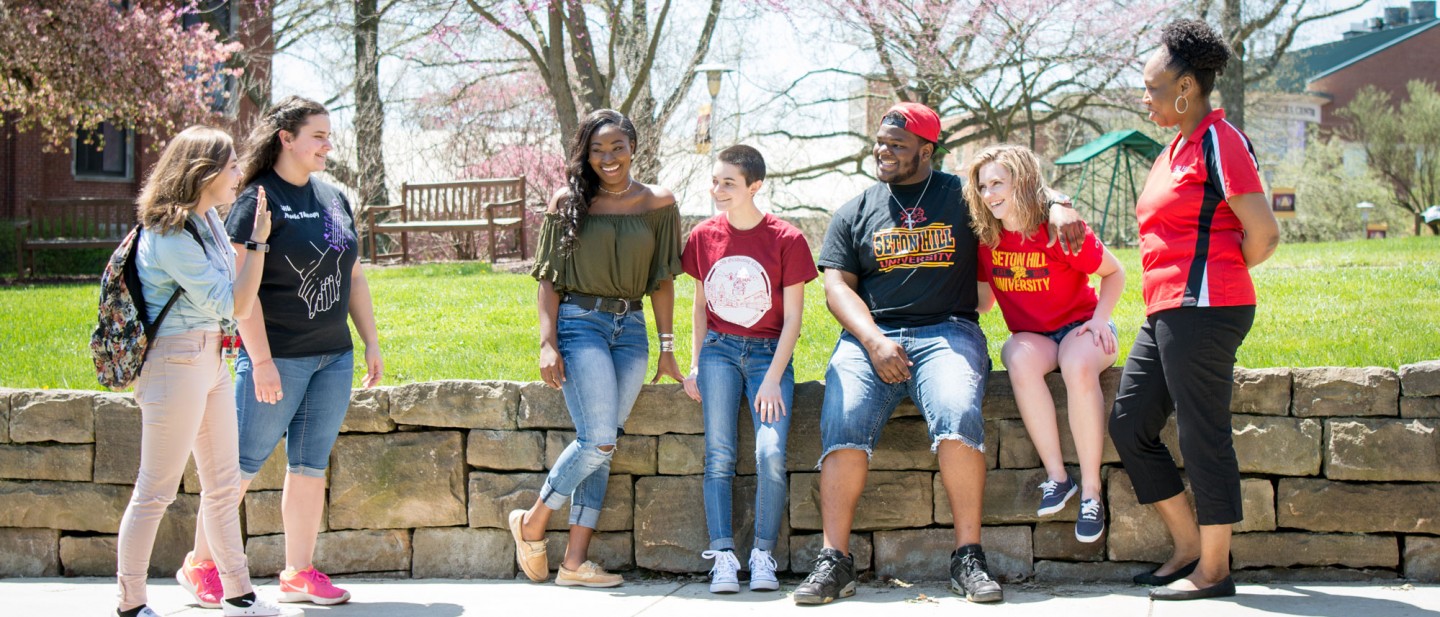Advancing Setonian Values

Setonian Values
Seton Hill promotes an environment in which contributions and strengths are recognized, optimized and valued in a way that generates opportunities for growth, innovation and creativity within the Seton Hill University community.
Commitment to Broad Perspectives & Setonian Values
Seton Hill University has always been dedicated to fostering a welcoming and supportive learning environment where all members of our campus community are valued and respected. We recognize that a broad range of perspectives and experiences enriches learning, drives innovation, and strengthens our community, shaping the University’s future success.
Throughout the year, the University hosts cultural events and educational programs that encourage cross-cultural understanding and mutual respect. Guest speakers regularly visit campus to highlight the importance of engaging with and learning from one another’s unique backgrounds and experiences. Seton Hill remains committed to continuously expanding opportunities for dialogue, collaboration, and growth for all who study, teach, and work here.
Advancing Setonian Values Task Force
The Advancing Setonian Values Task Force ensures that Seton Hill’s institutional practices align with the University's commitment to fostering respect, opportunity, and belonging for all. The task force enhances existing programs and policies while developing new initiatives to cultivate a community rooted in these shared values. The tenets of Catholic Social Teaching, which convey that every person has inherent dignity, and Seton Hill's Setonian traditions are at the core of the work of the task force.
Key Areas of Focus:
- Supporting student enrollment and retention initiatives
- Strengthening faculty and staff hiring, education, and mentoring
- Enhancing curriculum to reflect a broad range of perspectives
- Expanding student programming and initiatives
- Ensuring University communications reflect Seton Hill’s values
- Assessing organizational structure and strategy
Task Force Membership
The Advancing Setonian Values Task Force includes representatives from across the institution, bringing together faculty, staff, administrators, alumni, and student support leaders. Members contribute expertise from areas including academics, student affairs, enrollment, mission and identity, public safety, athletics, and institutional advancement. Working collaboratively, they ensure that the University's policies and initiatives reflect Seton Hill’s ongoing commitment to fostering a supportive and engaged campus community.